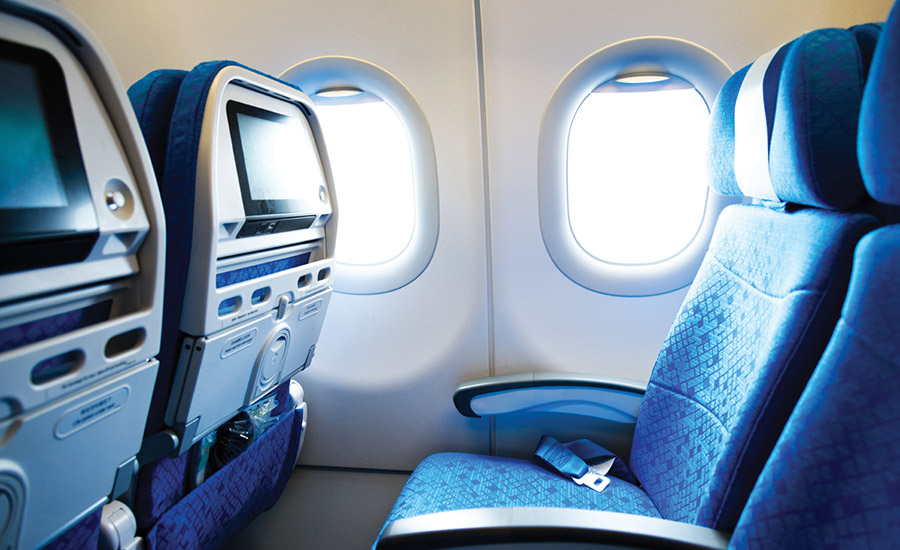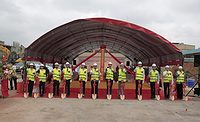New GE Aviation Plant Seeks to Narrow Manufacturing Skills Gap
GE’s Lafayette operation, which opened in 2015, is in the throes of the fastest production ramp-up for a commercial jet engine since jetliners were first introduced in the 1950s.

After creating eight factories across the U.S. over the past decade, GE Aviation is working to narrow the “skills gap” facing many young Americans seeking jobs in today’s advanced manufacturing plants. GE Aviation collaborates with universities, community colleges, and public schools on job training programs in communities where it operates plants. Nowhere is it more critical than at GE’s jet engine assembly plant in Lafayette, Ind. This is because GE’s Lafayette operation, which opened in 2015, is in the throes of the fastest production ramp-up for a commercial jet engine since jetliners were first introduced in the 1950s. In addition, Lafayette needs shop-floor technicians holding a Federal Aviation Administration (FAA) powerplant license to perform the diverse technical tasks on sophisticated equipment inside the new facility.
GE’s Lafayette factory produces the LEAP engine for CFM International, the successfully 50/50 joint company of GE and Safran Aircraft Engines of France. More than 14,000 LEAP engines are on back order to power three popular twin-engine airplanes: the Airbus Industrie A320neo, Boeing 737 MAX, and China’s COMAC C919. The Airbus and Boeing airplanes are now in airline service.
Two GE Aviation factories in the U.S. (Lafayette and Durham, N.C.) assemble half of the LEAP engines, and Safran’s plant in Villaroche, France, assembles the balance. In addition to final assembly, the two GE plants produce the “hot section” (compressor, combustor, high-pressure turbine) core for every LEAP engine assembled in U.S. and France.
The GE and Safran factories delivered 459 LEAP engines in 2017. The LEAP delivery goal for 2018 is up to 1,200 engines and in the 1,800-engine range in 2019. Lafayette’s LEAP deliveries will grow from 193 LEAP engines in 2017 to 600 engines in 2018. and delivery rates will continue to grow for several years afterwards
When plant manager Eric Matteson opened the Lafayette plant, he knew he faced a work-skills challenge. “I needed FAA-licensed assemblers,” he said. “Many people want to work at our site, but they need the license to handle the scope of work, which can range from operating $3 million grinders to unique inspection machines. But the community is rallying around our challenge.”
In 2016, Ivy Tech Community College, which is within walking distance of the GE plant, established a two-year associate of applied science degree in aviation maintenance technology with a powerplant concentration. The college then teamed with neighboring Purdue University in a co-enrollment program to ensure the two-year degree also provided for an FAA powerplant license. Purdue doesn’t offer two-year degrees, but it does offer powerplant courses, the FAA license testing, and access to its aviation equipment for the co-enrolled Ivy Tech students.
According to Todd Roswarski, Ph.D., Ivy Tech’s vice chancellor for academic affairs, the school aims to have about 20 graduates from the program each year to provide a pipeline for GE’s Lafayette operation and other manufacturing operations. Ivy Tech currently has 17 students in the program, with the first graduates expected within a year.
Why is this program critical to GE’s Lafayette plant? Today, the plant has 100 FAA-licensed technicians. By year’s end, it will need another 65 technicians—and more will be needed in 2019. “We are counting on Ivy Tech to be a long-term local pipeline,” said Matteson. “These kind of manufacturing challenges are very common today.”
Matteson needs licensed technicians for more than engine assembly. They are engaged in full disassembly of LEAP engines as part of field inspection programs. In addition, Lafayette is also a designated LEAP maintenance shop.
GE’s FAA-licensed technicians are not only critical to Lafayette, but they can be deployed across GE Aviation’s worldwide network of support sites when engine issues arise. On occasion, Lafayette technicians are deployed to GE Aviation’s outdoor test operation in Peebles, Ohio, to ensure timely LEAP delivery. Every LEAP engine assembled in the U.S. is tested in Peebles before final delivery.
The FAA license also provides GE employees with a career path. “We’ve already promoted several of our licensed technicians to management salaried roles,” Matteson said.
While Ivy Tech ramps up its associate degree program in aviation technology, GE is also actively recruiting FAA-licensed technicians from the Aviation Institute of Maintenance (AIM) and the Vincennes Aviation Technology Center, both at the Indianapolis International Airport. The Ivy Tech and Purdue University two-year program is one of several initiatives in Lafayette focused on the growing “skills gap” in manufacturing. The Greater Lafayette Commerce has initiated a Workforce 2030 team of business and academic leaders focused on school awareness programs and curriculum strategies to put a greater focus on the career opportunities in manufacturing.
According to Roswarski, Ivy Tech is more aligned with local manufacturers to address their personnel challenges. “We are looking to design more programs that bring a technology focus to the manufacturing floor,” he said. “These programs help manufacturers promote from within and show a meaningful career path for entry-level workers.”
Brad Rohrer, manager of human relations for Subaru of Indiana Automotive in Lafayette, applauds Ivy Tech’s efforts. Rohrer, like Matteson and Roswarski, is engaged in the local Workforce 2030 initiative. “The vocational training at the high school level has declined, and it impacts our ability to grow manufacturing,” he said. “We are going directly to the high schools with summer camps on manufacturing and job fairs. We need to get young men and women excited about manufacturing again.”
For more information, visit www.geaviation.com.
Looking for a reprint of this article?
From high-res PDFs to custom plaques, order your copy today!





